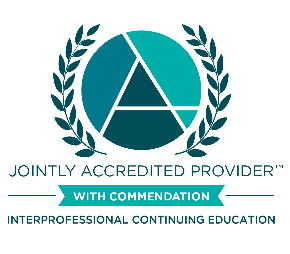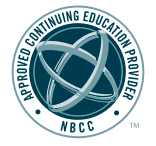A Resource for Healthcare and Social Services Professionals
December 15, 2023
12:00 pm–1:30 pm ET
The holiday season can be challenging and stressful when navigating the pressures associated with this time of the year. For many, alcohol consumption significantly increases between Thanksgiving and New Year's for a variety of reasons, including family dynamics, increased social gatherings, holiday traditions, and increased feelings of loneliness, sadness, or isolation. This training will review strategies on how to avoid or reduce alcohol consumption as well as techniques for how to talk about one's alcohol use during a particularly stressful time of year.
Via Zoom
The holiday season can be challenging and stressful when navigating the pressures associated with this time of the year. For many, alcohol consumption significantly increases between Thanksgiving and New Year's for a variety of reasons, including family dynamics, increased social gatherings, holiday traditions, and increased feelings of loneliness, sadness, or isolation.
This training will review strategies on how to avoid or reduce alcohol consumption as well as techniques for how to talk about one's alcohol use. This session will equip team members across settings to better understand how and why alcohol consumption increases during a particularly stressful time of the year. This is an opportunity to better explore the importance of identifying risky drinking and implementing harm reduction strategies to help decrease alcohol-related risks.
Prescribers, nurses, social workers, and other clinical and non-clinical staff.
Lydie is the Executive Director at Beth Israel Lahey Health Behavioral Services, working to drive strategic initiatives within the medical organization. Before her current role, she was Vice President of Addiction Services at Bay Cove Human Services, overseeing the addiction and recovery services division. Her career includes various roles within the Commonwealth of Massachusetts Department of Public Health, including Director of the Office of Health Equity and Bureau Director of the Bureau of Substance Addiction Services.
Nalan Ward, MDDr. Ward is the Chief Medical Officer of Beth Israel Lahey Health (BILH) Behavioral Services and an Assistant Professor in Psychiatry at Tufts University School of Medicine. Before joining BILH in April 2019, she worked as the Medical Director of Outpatient Addiction Services in the Department of Psychiatry at the Massachusetts General Hospital and as Assistant Professor in Psychiatry at Harvard Medical School. Dr. Ward completed psychiatry residency and addiction psychiatry fellowship training at the Boston University Medical Center.
Boston Medical Center Grayken Center for Addiction TTA, Massachusetts Department of Public Health, Bureau of Substance Addiction Services (DPH/BSAS)
Funding for out of state attendees is provided by the Opioid Response Network (ORN).
Funding for this initiative was made possible (in part) by grant no. 1H79TI083343 from SAMHSA. The views expressed in written conference materials or publications and by speakers and moderators do not necessarily reflect the official policies of the Department of Health and Human Services; nor does mention of trade names, commercial practices, or organizations imply endorsement by the U.S. Government.
REQUIREMENTS for credit
Please note this policy is strictly enforced for accreditation purposes. Participants will forfeit collection of credit and certificates of completion if more than 10 minutes of the training is missed.
CME
 In support of improving patient care, Boston University Chobanian & Avedisian School of Medicine is jointly accredited by the Accreditation Council for Continuing Medical Education (ACCME), the Accreditation Council for Pharmacy Education (ACPE), and the American Nurses Credentialing Center (ANCC), to provide continuing education for the healthcare team.
In support of improving patient care, Boston University Chobanian & Avedisian School of Medicine is jointly accredited by the Accreditation Council for Continuing Medical Education (ACCME), the Accreditation Council for Pharmacy Education (ACPE), and the American Nurses Credentialing Center (ANCC), to provide continuing education for the healthcare team.
Boston University Chobanian & Avedisian School of Medicine designates this live activity for a maximum of 1.50 AMA PRA Category 1 Credit(s)™. Physicians should claim only the credit commensurate with the extent of their participation in the activity.
Nursing
Boston Medical Center is approved as a provider of nursing continuing professional development by the American Nurses Association Massachusetts, an accredited approver by the American Nurses Credentialing Center’s Commission on Accreditation. Participants who complete and return the evaluation and stay for the entire session will be awarded 1.50 contact hours.
Social Work
As a Jointly Accredited Organization, Boston University Chobanian & Avedisian School of Medicine is approved to offer social work continuing education by the Association of Social Work Boards (ASWB) Approved Continuing Education (ACE) program. Organizations, not individual courses, are approved under this program. Regulatory boards are the final authority on courses accepted for continuing education credit. Social workers completing this course receive 1.50 general continuing education credits.
LMHC
 BMC Grayken Center of Addiction TTA has been approved by NBCC as an Approved Continuing Education Provider, ACEP No. 7188. Programs that do not qualify for NBCC credit are clearly identified. BMC Grayken Center of Addiction TTA is solely responsible for all aspects of the programs. For this program, 1.50 contact hours will be offered to participants who attend the training and complete the evaluation.
BMC Grayken Center of Addiction TTA has been approved by NBCC as an Approved Continuing Education Provider, ACEP No. 7188. Programs that do not qualify for NBCC credit are clearly identified. BMC Grayken Center of Addiction TTA is solely responsible for all aspects of the programs. For this program, 1.50 contact hours will be offered to participants who attend the training and complete the evaluation.
LADC/CADC & Recovery Coach
Grayken Center for Addiction TTA is approved to offer LADC/CADCs and recovery coaches who complete this course 1.50 general continuing education credits.
Disclaimer
Continuing education (CE) requirements vary by license and jurisdiction. When requesting continuing education credits, please ensure you are following the rules and regulations determined by the board regulating your license. Boston Medical Center Grayken Center for Addiction TTA does not oversee adherence to licensing requirements and regulations.